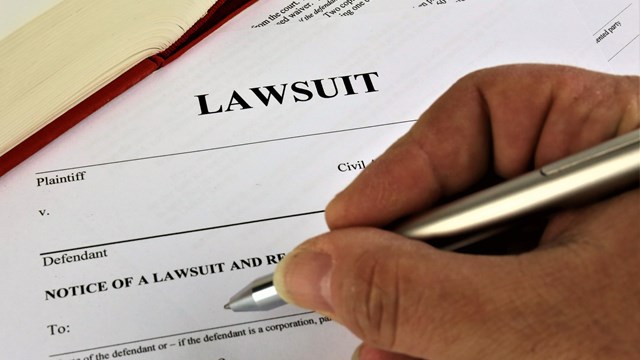
A community association's board has multiple duties—among them deciding when to make repairs, improvements, and additions, and establishing rules and regulations to control aesthetics and unwelcome behavior. Nine times out of ten, repair projects go off without a hitch, and rules are followed. Unfortunately however, those rules and reason sometimes collide, pitting neighbor against neighbor.
One Man's Noise…
One such situation that commonly reaches a fever pitch is that of noise. What control does an association have over regulating noise, and do the house rules and governing documents established by an HOA supercede regulations or ordinances that may be in place in a certain municipality or township? What happens if a resident is revving their motorcycle or car engine on a weekend or cutting the lawn really early in the morning when most homeowners are asleep? How about the newest America's Got Talentband member waking up the dead at 5 a.m. rehearsing in his dad's garage? What happens if the municipality itself is the noise culprit? Is there a formal process to handle a noise complaint?
Unfortunately, noise is something that is somewhat difficult to define, and even harder to prove. "One person's loud television is another person's 'I can barely hear it,'" says David Byrne, an attorney with Stark and Stark, a law firm in New Jersey that specializes in condominium association law. "How do you prove that it is noisy - install a decibel meter in the hallway?"
In a related article, Steve Orfield, writing for Orfield Labs agrees: "All condos are noisier than private housing, partly because in private housing, one is listening to one's own family or friends and this is not noise—which is technically known as undesirable sound."
According to the County Environmental Health Act (CEHA), "Noise means any sounds of such level and duration as to be or tend to be injurious to human health or welfare, or which would unreasonably interfere with the enjoyment of life or property throughout the state."
The most common noise complaints vary by community type, says Byrne. "In high-rise buildings, the most common complaints are TVs, parties, and conversation. Some of the units are not insulated properly, and that adds to the noise level in condominiums. In suburban areas, the most common noise complaints are usually animals."
What Are the Regulations?
The federal government set guidelines through the Environmental Protection Agency (EPA) in the Noise Control Act of 1971. In 1983, the federal government decided that noise control was largely a local matter and should be left up to the state and local municipalities. The act did leave in place the guidelines set forth by the 1971 laws, which largely pertained to transportation noise such as aircraft, interstate traffic and railroads, motorcycles, and workplace activities.
The Office of Local Environmental Management (OLEM) exists to provide assistance to county and municipal governing bodies in the development and adoption of a local noise ordinance, to ensure that all local noise control ordinances are consistent with the Noise Control Act and comply with its requirements.
At the state level, New Jersey tends to pass the noise issue down to local authorities: "The way it works here in New Jersey is that some matters are delegated to local authorities under a program called CEHA, including noise complaints. We delegate enforcement authority, so that it is usually somebody from the county who investigates those kinds of complaints," says Karen Hershey, of the New Jersey Department of Environmental Protection (NJDEP). The reason for this is that noise is largely considered a "regional" issue by state and federal authorities and so the local authorities would be better able to handle these complaints.
So it would seem that finding an absolute authority on noise regulation is difficult to do. Even community associations are likely to have in place the hours and specifics of the kind and duration of noise that are tolerated in a certain area. In general, quiet hours are from 10 p.m. to 8 a.m., but hours may vary. The best way to find out what noise ordinances are in your area is to call the county or municipal office, or ask someone on your cooperative or community board.
Dangerous, or Just Annoying?
The lawn mower revving up at 7 a.m. is certainly annoying, and may prevent some much-needed sleep, and the garage singer who works the evening shift until 11 p.m. and then decides to practice at full volume may dance on your last frayed nerve, but at what level do sounds actually become dangerous?
According to a 2000 report on noise abatement and control by David M. Beardon for the National Institute on Deafness and Other Communication Disorders, exposure is responsible for hearing impairment in approximately 10 million of the nearly 30 million people with hearing loss in the United States. An additional 30 million people are exposed to dangerous noise levels.
Demystifying the Decibel
Sound is measured in units of decibels (dBA), and an increase of 10 dBA represents sounds that are perceived to be twice as loud. While sound levels of 65 dBA are annoying to most individuals, constant or repeated exposure to levels of 90 dBA or higher can lead to hearing loss. The following tables provide examples of various sound levels.
Resolving the Problem
So what can be done if there is a noise issue in your community? Do you turn to the board of your co-op or condo? Call the police or the Department of Environmental Protection? What if you need to press charges or file a criminal complaint?
"I tend to tell clients that noise complaints are not really things that community associations are set up to handle," says Byrne. "They are very subjective, and if the government, through the police, is not interested in doing anything when they are called to a site, then it is almost impossible to expect the association to be able to do anything about it."
So what's to be done? According to the professionals, the first step is to politely request that your neighbor reduce his or her sonic output. If that approach fails to obtain results, the next step would be to call the police, so that an official complaint is filed. From there, you might have the option of pursuing other, possibly less neighborly avenues, such as a civil lawsuit, if you chose to do so—though that course of action very often ends in frustration.
Byrne cites the lack of provable evidence in such a case, and stresses the importance of New Jersey's alternative dispute resolution (ADR) rules, which state that disagreeing parties must meet and explore other means of resolving their differences before launching full-blown legal action. This type of forum is recognized in New Jersey as an alternative to a civil lawsuit, and can save both parties involved a substantial amount of time and money.
Community associations are required by the DEP to provide forums like ADR to its members. This type of resolution is a voluntary agreement among parties to agree to terms that are hopefully mutually beneficial—or at least tolerable. There are two types of ADR hearings available: mediation and arbitration. The DEP defines them as follows:
Mediation involves the affected parties developing a joint resolution of the problem and agreeing on a future course of action. The Office of Dispute Resolution acts as an impartial third party to help the parties explore options for resolution that may not previously have been considered. The majority of mediations handled by the Office of Dispute Resolution are matters that have already been contested and are scheduled for either an administrative hearing or a trial.
Arbitration is a formal fact-finding process in which the arbiter can render a judgment on the issues. This judgment can be binding or non-binding. The Office of Dispute Resolution does not engage in arbitration, but can help select qualified arbiters should the parties choose this course.
As far as noise-related conflicts are concerned, "There is no independent determination as to whether or not it is actually noisy," says Bynre, "so the ADR mediation option exists for people to get together to see if they can work out an arrangement that will make their lives easier. For example, I may not agree that my TV is too loud, but I may agree not to watch it after 11 o' clock; I may not agree that my dog is too loud, but I will agree to keep him upstairs at night - that sort of thing."
Often, the arbiter or mediator in an ADR hearing is a volunteer - possibly someone from the community or building. If no one volunteers, then someone would have to be hired. Byrne also stresses that community associations are not required to resolve disputes, or to go to court on either party's behalf. "All the association has to do is to provide a forum in which people can come together to try to work things out. If it doesn't work out," he says. "People are free to go to court to try to settle it."
In the event that the municipality itself is the culprit, the appropriate action would again be to call the police. The town or county certainly must obey its own noise ordinances. The Department of Community Affairs (DCA) has little authority over noise regulation.
"The DCA has the power to force the association to provide ADR, but they do not have the power to go after a noisy neighbor," says Byrne. "If regular people can't live with each other, DCA doesn't have the power to keep people quiet."
Denton Tarver is a freelance writer living in New York City.






56 Comments
Leave a Comment